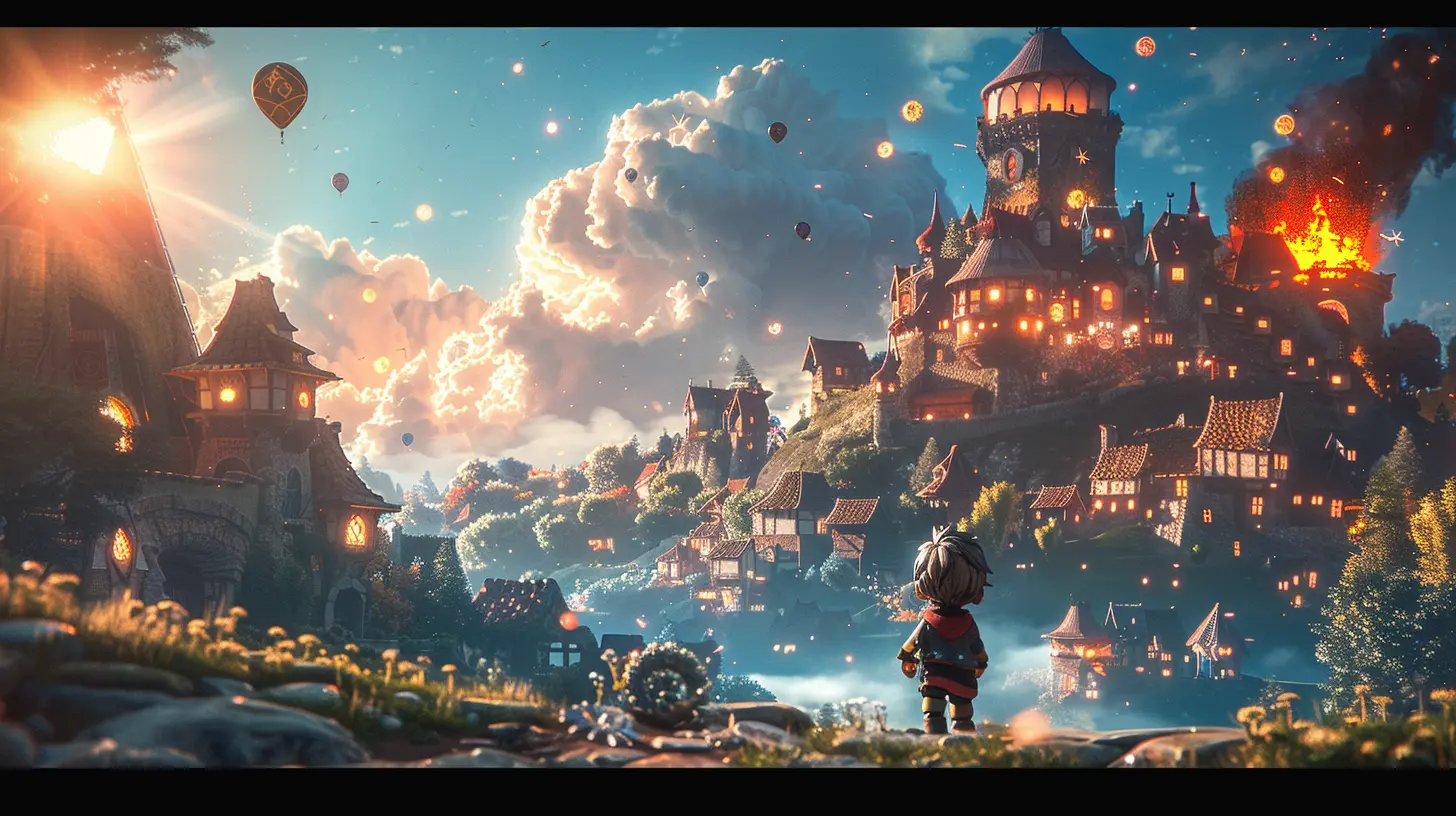Five Misconceptions About Social Games and Why They Aren't True
12 May 2025
It’s no secret that social games have taken the world by storm. From candy-crushing on the subway to farming imaginary crops during lunch breaks, millions of people dive into these games daily. But despite their massive popularity, social games often get a bad rap. People throw around assumptions like, “They're mindless,” or “They’re only for kids.” If you’ve ever told someone you enjoy a quick round of Words With Friends, only to be met with a judgmental side-eye, you know exactly what I’m talking about.
These misconceptions about social games have been around for years, but guess what? Most of them are flat-out wrong. Let’s look at five common myths about social games and unpack why they just don’t hold up. 
Misconception 1: Social Games Are Only for Kids
When you think of social games, it’s easy to picture a 12-year-old glued to an iPad battling for supremacy in Clash Royale. But here’s the truth: social games are definitely NOT just for kids.The numbers back this up. A recent industry report shows that the average age of social game players is actually in the mid-30s. On top of that, adults make up a huge chunk of the market. Think about it—how many times have you seen your mom obsessing over Candy Crush or your boss bragging about topping the leaderboards in Trivia Crack?
Social games cater to a wide audience. Their simple mechanics and short play sessions make them perfect for anyone looking to relax, whether you’re 18 or 80. Plus, many social games incorporate themes and challenges that are way more appealing to adults. The next time someone says social games are just for kids, remind them that Boomers are out here dominating online Solitaire tournaments like it’s nobody’s business. 
Misconception 2: Social Games Are Just Time-Wasters
We’ve all heard it before: “You’re wasting time playing that game! Do something productive!” First off, let’s pump the brakes. Are social games fun? Absolutely. But are they just meaningless distractions? Not even close.Social games can actually be great for your brain. Many of them involve strategy, problem-solving, and quick decision-making. For example, games like Sudoku or Mahjong not only scratch that itch for competition but also keep your mind sharp. Even word games like Scrabble Go help expand your vocabulary and improve your spelling.
And let’s not forget the social aspect (it’s literally in the name). These games often connect players from around the world, fostering friendships and communities. Whether you’re bonding with your cousin over a round of Fortnite or joining a guild in Clash of Clans, you’re building relationships along the way. That’s not wasting time—it’s investing in human connection. 
Misconception 3: Social Games Are Pay-to-Win
A lot of people claim that you can’t enjoy social games without spending money. They’re “pay-to-win,” right? Wrong. Sure, many social games have in-app purchases, but let’s be real: no one’s forcing you to whip out your credit card.Most social games are designed to be free-to-play. That means you can absolutely enjoy the game without dropping a cent. Yes, buying shiny upgrades or extra lives might make things easier, but they don’t make them mandatory. There’s a reason so many players reach high levels without spending a dime: patience and skill go a long way.
In fact, many players actually enjoy the grind. Managing resources, strategizing your moves, and earning rewards over time can feel way more satisfying than simply buying your way to the top. Think of it like cooking a homemade meal versus ordering takeout—it takes effort, but the payoff is worth it. 
Misconception 4: Social Games Are Mindless and Lacking Depth
Have you ever heard someone say, “Social games are just mindless tapping on a screen”? Let me stop you right there. While it’s true that some games are relaxed and casual, that doesn’t mean they lack depth or creativity.Take Among Us, for instance. At first glance, it looks like a silly game about colorful space beans running around a spaceship. But dive a little deeper, and it’s all about strategy, communication, and, let’s be honest, lying through your teeth to convince your friends you’re not the Impostor.
Even simpler games like FarmVille or Merge Dragons offer layers of strategy and planning. Whether you’re optimizing your farm layout or figuring out how to merge items for maximum efficiency, there’s more to these games than meets the eye. So before you write off social games as brainless, give one a try. You might discover a hidden complexity that keeps you hooked.
Misconception 5: Social Games Aren't "Real" Games
This one’s a doozy. There’s a common belief among hardcore gamers that social games don’t count as “real” games. If it’s not a triple-A console title with jaw-dropping graphics, it’s just fluff, right? Wrong again.Let’s break it down. A game, at its core, is designed to entertain, engage, and challenge the player. Social games check all these boxes. Whether you’re strategizing in Clash of Clans or teaming up with friends in PUBG Mobile, these games offer plenty of excitement and challenge.
And let’s not forget the evolutionary impact of social games on the gaming industry. They’ve introduced millions of people to gaming who might’ve never picked up a traditional controller. In fact, many social games blur the lines between casual and competitive gaming. Titles like Hearthstone have thriving esports communities, proving that social games are just as legitimate as their more “hardcore” counterparts.
So the next time someone says social games aren’t “real,” remind them that gaming is for everyone—whether you’re building a kingdom, solving puzzles, or fending off zombies on your smartphone.
Final Thoughts: Why Social Games Deserve More Respect
Social games have been misunderstood for far too long. They’re not just for kids, they’re not mindless, and they’re certainly not a waste of time. These games bring people together, stimulate your brain, and, most importantly, offer a whole lot of fun.The beauty of social games lies in their accessibility. You don’t need a fancy gaming rig or hours of free time to enjoy them. They fit seamlessly into our busy lives, offering little moments of joy in between work, chores, or errands.
So the next time someone starts trash-talking social games, don’t let it slide. Share what you’ve learned here and let them know just how valuable and rewarding these games can be. Who knows? You might just convert a skeptic into a fellow player.
all images in this post were generated using AI tools
Category:
Social GamesAuthor:

Kaitlyn Pace
Discussion
rate this article
3 comments
Piper Brooks
Thank you for shedding light on these misconceptions! It's important to recognize the positive aspects of social games and how they foster connection and creativity. Your insights help bridge understanding within the gaming community.
May 26, 2025 at 5:00 PM

Kaitlyn Pace
Thank you for your kind words! I’m glad the article resonates and helps highlight the valuable role of social games in promoting connection and creativity.
Lennox Stone
Social games aren’t just for casuals! They're rich, immersive experiences that challenge stereotypes. Let’s debunk the myths and celebrate the creativity behind these games. If you think they’re all fluff, darling, you’re missing out on some serious fun and innovation! Level up your perception!
May 24, 2025 at 4:51 AM

Kaitlyn Pace
Absolutely! Social games offer depth and creativity, breaking stereotypes while providing engaging experiences for all players. Let’s celebrate their innovation and richness!
Paris Lamb
Great article! It's refreshing to see misconceptions about social games addressed so effectively. Your insights highlight their true value and community-building potential. Keep up the fantastic work!
May 20, 2025 at 2:08 PM

Kaitlyn Pace
Thank you so much for your kind words! I'm glad you found the article insightful. I appreciate your support!



